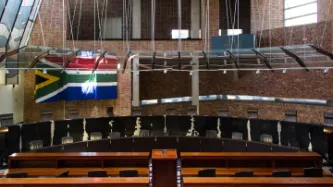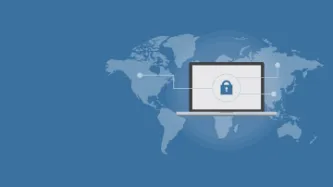Search
Content type: Examples
July 2021 saw violent protests that left 72 people dead and 1,300 in prison after former president Jacob Zuma was jailed for failing to appear before a constitutional court’s inquiry into corruption during his time in office. In response, the South African government deployed the military onto the streets in the provinces of Gauteng and Kwazulu Natal, and began monitoring social media platforms and tracking those who “are sharing false information and calling for civil disobedience”. President…
Content type: Examples
The South African government urged social media platforms to trace and remove posts that incite violence, share false information, and call for civil disobedience after a July 2021 series of spiralling protests sparked by the jailing of former president Jacob Zuka. A number of other African countries such as eSwatini, Senegal, Nigeria, Uganda, Niger, and the DRC have also been increasingly using tracking software, internet shutdowns, and social media monitoring during protests and elections.…
Content type: News & Analysis
Today, the Constitutional Court of South Africa in a historic judgment declared that bulk interception by the South African National Communications Centre is unlawful and invalid.
The judgment is a confirmation of the High Court of South Africa in Pretoria’s powerful rejection of years of secret and unchecked surveillance by South African authorities against millions of people - irrespective of whether they reside in South Africa.
The case was brought by two applicants, the amaBhungane Centre…
Content type: Examples
The government has revealed that illegal immigrants will also benefit from the rollout of the Covid-19 vaccine.
National Treasury director-general Dondo Mogajane said this during a virtual meeting between his department and the SA National Editors Forum on Wednesday afternoon.
“We are in SA and we have many millions of undocumented people and [we can't say they shouldn't receive the vaccine as they are undocumented]. The demand for the vaccine is going to be exceeded, and we are not going to…
Content type: News & Analysis
Our intervention comes on the back of mounting evidence that the South African state’s surveillance powers have been abused, and so-called “checks & balances” in RICA have failed to protect citizens’ constitutional right to privacy.
Among our core arguments are:
That people have a right to be notified when their communications have been intercepted so that they can take action when they believe their privacy has been unlawfully breached. Currently RICA prevents such notification, unlike…
Content type: News & Analysis
As the international cyber security debate searches for new direction, little attention is paid to what is going on in Africa. Stepping over the remains of the UN Group of Governmental Experts, and passing by the boardrooms of Microsoft struggling to deliver their Digital Geneva Convention, African nations are following their own individual paths.
Unfortunately, these paths increasingly prioritise intrusive state surveillance and criminalisation of legitimate expression online as…
Content type: Long Read
To celebrate Data Privacy Week, we spent the week discussing privacy and issues related to control, data protection, surveillance, and identity. Join the conversation on Twitter using #dataprivacyweek.
Do you live in a “smart city”? Chances are, you probably do (or at least your city claims to be). But do you know what exactly makes your city “smart”, beyond the marketing term? And what does this have to do with privacy?
Companies and governments will tell you that the more cameras, sensors…
Content type: Long Read
Privacy International is celebrating Data Privacy Week, where we’ll be talking about privacy and issues related to control, data protection, surveillance and identity. Join the conversation on Twitter using #dataprivacyweek.
Exercising the right to privacy extends to the ability of accessing and controlling our data and information, the way it is being handled, by whom, and for what purpose. This right is particularly important when it comes to control of how States perform these activities.…




